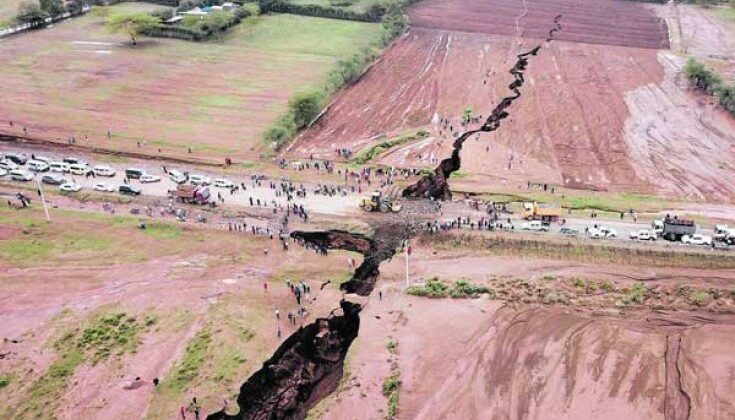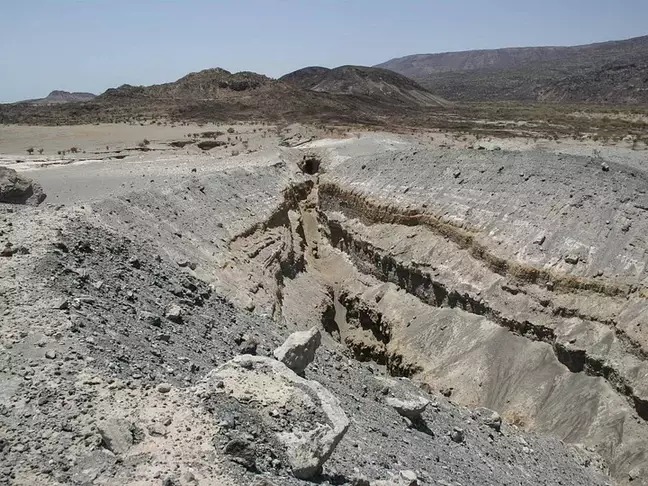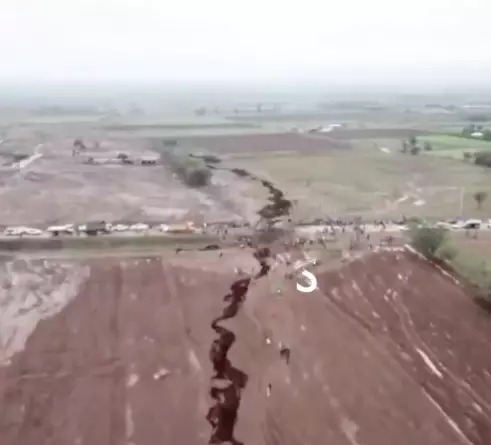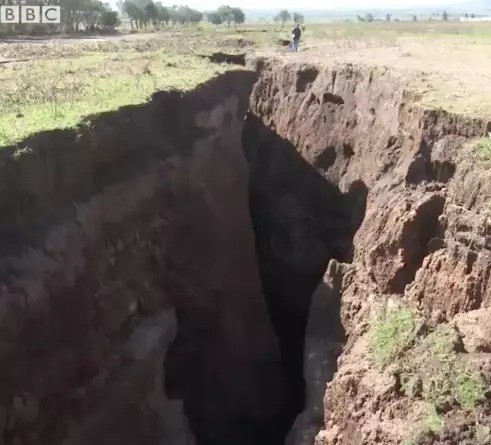
New shocking photos have emerged, showing how Africa is splitting apart, and a new ocean is beginning to form between the two masses of land. Parts of Kenya have started to split apart in recent years, leaving a huge gap in between, which could eventually create coastlines for countries like Zambia and Uganda.

Experts have revealed that a new ocean will one day run through the gap, which is known as the East African Rift, and this could take millions of years to happen. The crack currently runs 35 miles long, and its exact location has been discovered by researchers from the borders of three tectonic plates that have gradually been moving away from each other.
Christopher Moore, a Ph.D. doctoral student at the University of Leeds, revealed that the East African Rift is the only place on earth where it’s possible to study how continental rift becomes an oceanic rift. He utilized satellite radar technology to monitor volcanic activity in the region, which is most commonly associated with the continent’s gradual breakup.

The gap is growing, but it’s happening at a slow pace. The Arabian plate is moving away from Africa at a rate of approximately one inch per year, and the African and Somali plates are breaking away at a much slower rate of half an inch to 0.2 inches per year. With GPS measurements, experts can measure rates of movement down to a few millimeters per year.
Ken Macdonald, a marine geophysicist and professor emeritus based at the University of California, explained that as the gap continues to widen, East Africa will eventually form its own separate continent, and the Gulf of Aden and the Red Sea will flood in over the Afar region and into the East African Rift Valley, creating a new ocean.

In conclusion, the shocking photographs showing Africa splitting apart and a new ocean forming between the two masses of land are a clear indication of how the world is constantly evolving. While the process is slow, it highlights the power of tectonic plates and how they can shape the world we live in. These developments will undoubtedly have a significant impact on the people and countries in the region in the years to come.

Leave a Reply